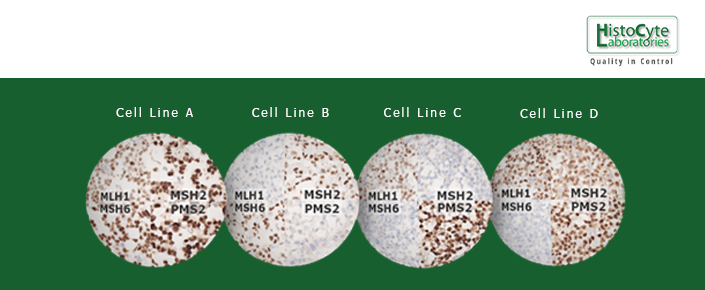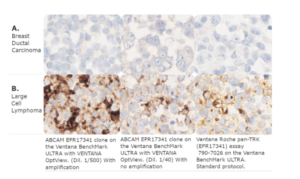HistoCyte analytes MMR & NTRK
Products are for professional/laboratory use only.
Mismatch repair (MMR) proteins are involved in repairing errors that are formed as part of DNA replication, e.g. point mutations. Although there are several known MMR proteins, four of these play a particularly important clinical role in human cancer biology – MLH1, MSH2, MSH6 and PMS2. These four proteins are arranged as heterodimers (MLH1 complexing with PMS2 and MSH2 complexing with MSH6) to recognise mismatched nucleotide base pairs caused by errors in deletion or insertion.
A mutation in one or more of these MMR proteins leads to impaired DNA repair which can result in microsatellite instability (MSI) and increased likelihood of cancers such as colorectal and endometrial carcinomas. MMR deficiency (dMMR) caused by mutations to MMR proteins can be termed as Lynch syndrome and accounts for 3-5% and 2-3% of colorectal and endometrial carcinomas, respectively.
NTRK is a group of three Neurotrophic Tyrosine Receptor Kinase genes: NTRK1, NTRK2 and NTRK3, each encode for the respective proteins TrkA, B and C. The external domain of the Trk receptors binds neurotrophin causing receptor dimerization, transphosphorylation and thus downstream signalling.
These NTRK genes are readily spliced, the resulting proteins end up with the C-terminal containing the tyrosine kinase/signalling part of the Trk protein. These fusion proteins are constitutively activated and drive tumorigenesis.
Abacus dx distributes HistoCyte in Australia only.








